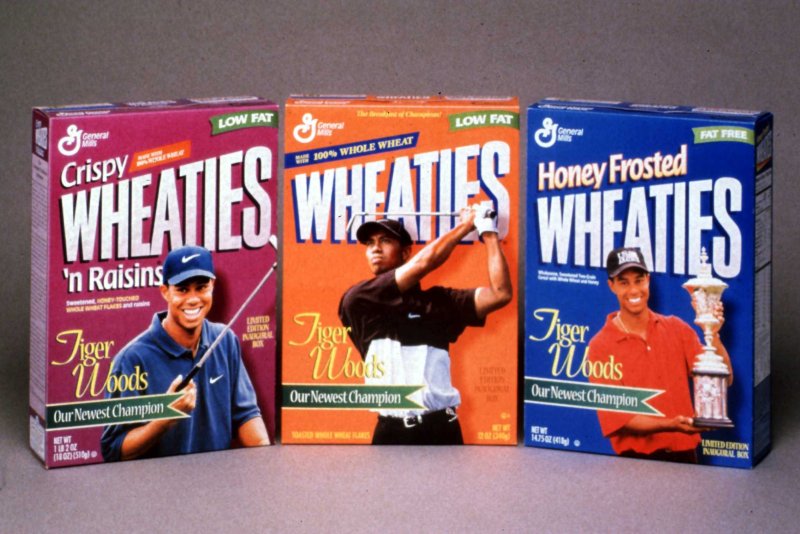Many cereals brag about their fortified nutrients. UPI bg/HO |
License Photo
WASHINGTON, June 24 (UPI) -- America's children are already getting too much sugar and consuming too many calories. Now they're also getting an excess of vitamins and minerals in their food.
According to a new report from the Environmental Working Group (EWG), 45 percent of children under 8 years old get too much zinc in their food, 13 percent consume too much vitamin A and 8 percent get more than the recommended amounts of niacin. These numbers don't account for the fact that many kids also take multivitamins.
Manufacturers of processed foods, especially cereals and snack foods, have used nutrient fortification as way to attract parents looking for healthier options in the grocery aisles. But as EWG pointed out in their new report, too much of a some vitamins and minerals can be harmful.
"Heavily fortified foods may sound like a good thing, but it when it comes to children and pregnant women, excessive exposure to high nutrient levels could actually cause short or long-term health problems," explained Renee Sharp, EWG's research director.
Young people are especially vulnerable to the consequences of too much of a single nutrient. Too much vitamin A can cause liver damage, brittle nails and hair loss. Toxic levels of zinc can can cause the immune system to malfunction. And rash and vomiting are the result of too much niacin.
One of the key takeaways from report is a similar refrain from healthy eating advocates: more whole fruits and vegetables and less processed food.
"The marketing of nutrient fortification suggests that getting 'more' nutrients equals a 'more nutritious' food option, yet from a health standpoint we know that to be false," said Ashley Koff, a former advertising executive for kids' cereals and snacks who has since become a registered dietician. "Research consistently shows that the nutrient amounts and types found in whole foods provide optimal nutrition as well as least risk."
Among the many recommendations made by the report, one of the most important is education. EWG encourages parents to better educate themselves on what's in the food they feed their children with regard to the forms and amounts of different vitamins.
The reports also suggested that the "FDA should limit the use of fortification and nutrient claims as marketing tools."















